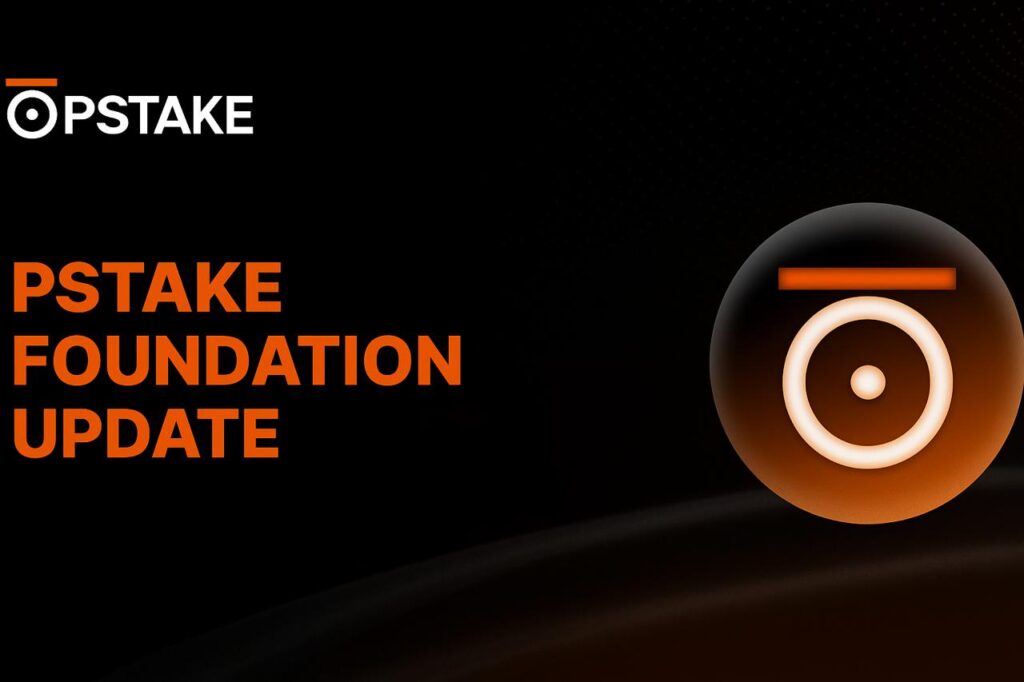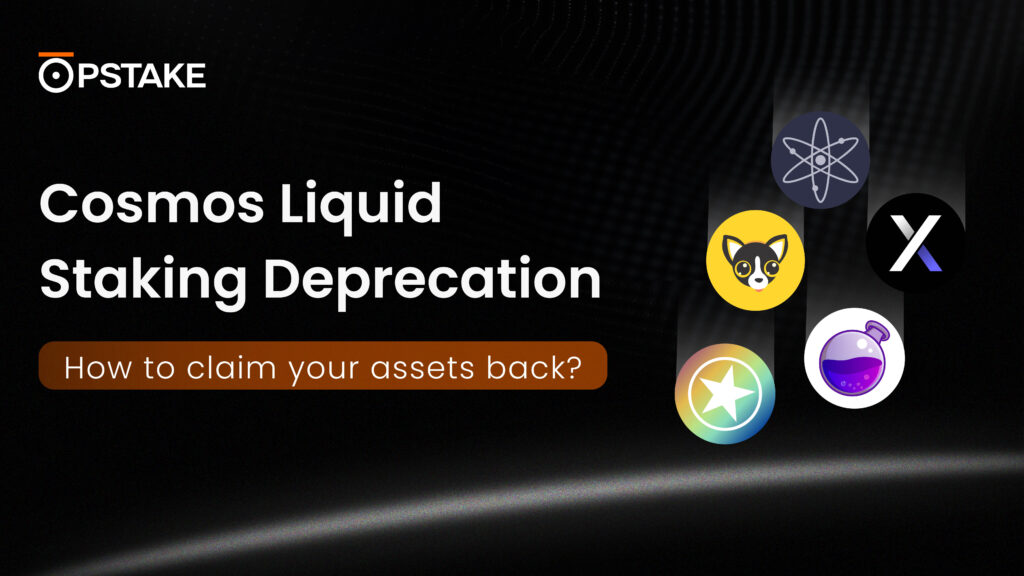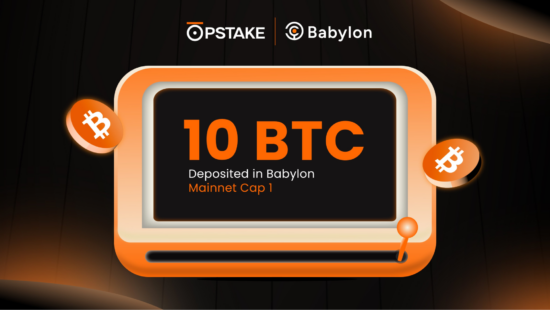pSTAKE Finance officially made its first BTC deposit into Babylon’s Bitcoin staking solution this month, marking the first milestone in bringing yields to BTC holders through liquid staking.
The Babylon BTC staking protocol went live on August 22, 2024, and pSTAKE officially secured a 10 BTC deposit in Babylon Cap 1.
Through clever engineering and savvy maths, pSTAKE Finance has saved over $7.5K on fees while giving our users one of the best BTC liquid staking experiences.
Here’s the story about how we managed to get 10 BTC into Babylon as soon as it launched.
Preparing For One of the Most Highly Anticipated Bitcoin Events
The Babylon launch was one of the most eagerly awaited events in the BTC ecosystem in 2024. The prospect of being able to natively stake BTC to generate yield was a game-changing proposition, and the entire industry was on the edge of its seat, waiting for the doors to open so that the first BTC deposits could be made.
The block number for Babylon’s launch was known ahead of time. The protocol was expected to go live at block number #857910, and we were expecting the fees on the blockchain to surge during the period as there would be a huge frenzy to stake BTC.
The product and engineering teams joined forces 24 hours before the Babylon launch for a huge brainstorming session about tackling the expected fee surge upon launch.
With the Bitcoin network’s block size parameters set so that a block generally has around 4,000 transactions in it, we knew that there would be a massive surge in demand for block space, which would lead to rising fees. We wanted to make sure we deposited as much BTC as possible, but we didn’t want to spend 10% to 20% in fees just to secure the deposit.
So, what did we do?
To improve the odds of getting something into Bbaylon, we decided to batch our BTC deposits.
The 50 BTC deposited into pStake Finance were broken down into two batches for two different individuals staking transactions with custom fees. To split the allocation, we actually used the laws of nature on-chain by employing the Pareto Principle of 80/20. As a result, the two transactions were set as:
- 10 BTC
- 40 BTC
How Did We Decide on Fees?
With the Pareto Principle dictating the splits for staking transactions, deciding the fees was the most vital piece of the puzzle for securing a deposit in Babylon.
Choosing the correct fee would be vital to ensure that the transaction was included in the block and that the BTC was deposited into Babylon. Each Bitcoin transaction has a certain size in bytes, and there’s a limit to the amount of bytes an individual block on the blockchain can hold. As a result, choosing the wrong fee would have resulted in pSTAKE not being picked up in the opening block and missing the opportunity to secure a BTC deposit.
If you’re an Ethereum user, you’ve definitely heard of “gwei” – the fees used to pay for Ethereum’s computational power to confirm a transaction. On Bitcoin, the fees are paid through a metric known as “sat/Vb”
To decide on the sat/Vb fee to pay, pSTAKE did some on-chain forensics into the launch of Runes, the last big event on the Bitcoin Network. We noticed that the medium fee when Runes went live was set as high as 2892 sat/Vb and fees kept increasing in the following blocks.
We decided we were happy to pay a maximum of 5% of the total stake for the fees. Based on that, we started crunching some numbers by considering multiple factors such as:
- Expected traffic
- Transaction size (vB)
- Max BTC to pay as fees per byte
- Babylon points we can pass to our users as rewards (speculative dollar value, if any)
- Possible penalty fee incurred if BTC didn’t get in, as there are unbonding fees set by Babylon
From that, we got the following optimal sat/Vb fee for each of our staking transactions:
- 10 BTC with 1293 sat/Vb fee
- 40 BTC with 483 sat/Vb fee
How Did pSTAKE Save $7.5K On Fees?
One benefit of liquid staking BTC on pSTAKE Finance instead of directly through Babylon is the fact that our devs can optimize for fees and transaction watching of deposits on behalf of our users.
As a result, we pre-created the staking transactions before the launch so that we were ready. During that time, we played around with the UTXOs in the transactions with different vByte and fee/byte in a way that produced only 2 outputs instead of 3 to further save on fees.
This engineering solution helped us save around $7.5K in fees, which is around 20% less than what we would have paid.
How Was the Liquid Staking Deposit Secured?
So, how did it go down?
Well, you can bet we were glued to our screens for hours before block #857910. When the block was reached, we saw network fees shooting as high as 5,000 sat/Vb.
We then broadcast our 10 BTC transaction into the following block (#857911) with our predetermined fees, and it was eventually confirmed on-chain, allowing us to stake BTC into Babylon.
Overall, we’re thrilled with the successful outcome of our efforts. We managed to get 10 BTC into Babylon, and we’re eagerly looking forward to the next staking cap to deposit more.
About pSTAKE Finance
pSTAKE Finance is a Bitcoin Yield and Liquid Staking protocol, backed by Binance Labs.
With pSTAKE Finance, users can liquid stake BTC to get rewards from Babylon’s Trustless BTC staking for securing other app chains while maintaining their liquidity.
Accessing Bitcoin yields should not be complex, risky, or unsafe. With four years of liquid staking expertise and expert-curated yield strategies, pSTAKE Finance helps individuals and institutions put their BTC to work in BTCfi.
pSTAKE Finance has partnered with leading blockchain security firms, such as Halborn, Hexens, Oak Security, Immunefi, Forta, and more, to offer a secure liquid staking product suite.
PSTAKE is the governance and incentivization token of the pSTAKE Finance protocol. It has some of the most prominent investors, including Binance Labs, DeFiance Capital, Spartan Group, Coinbase Ventures, and Kraken Ventures.










